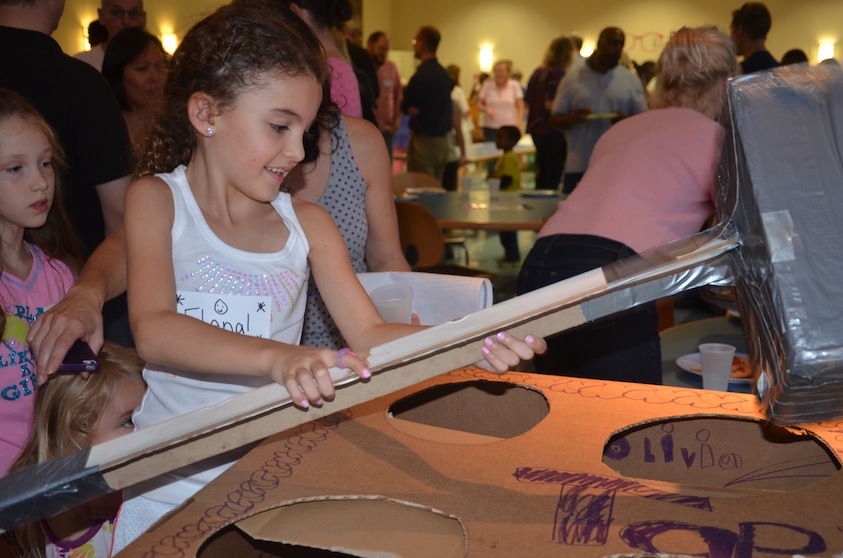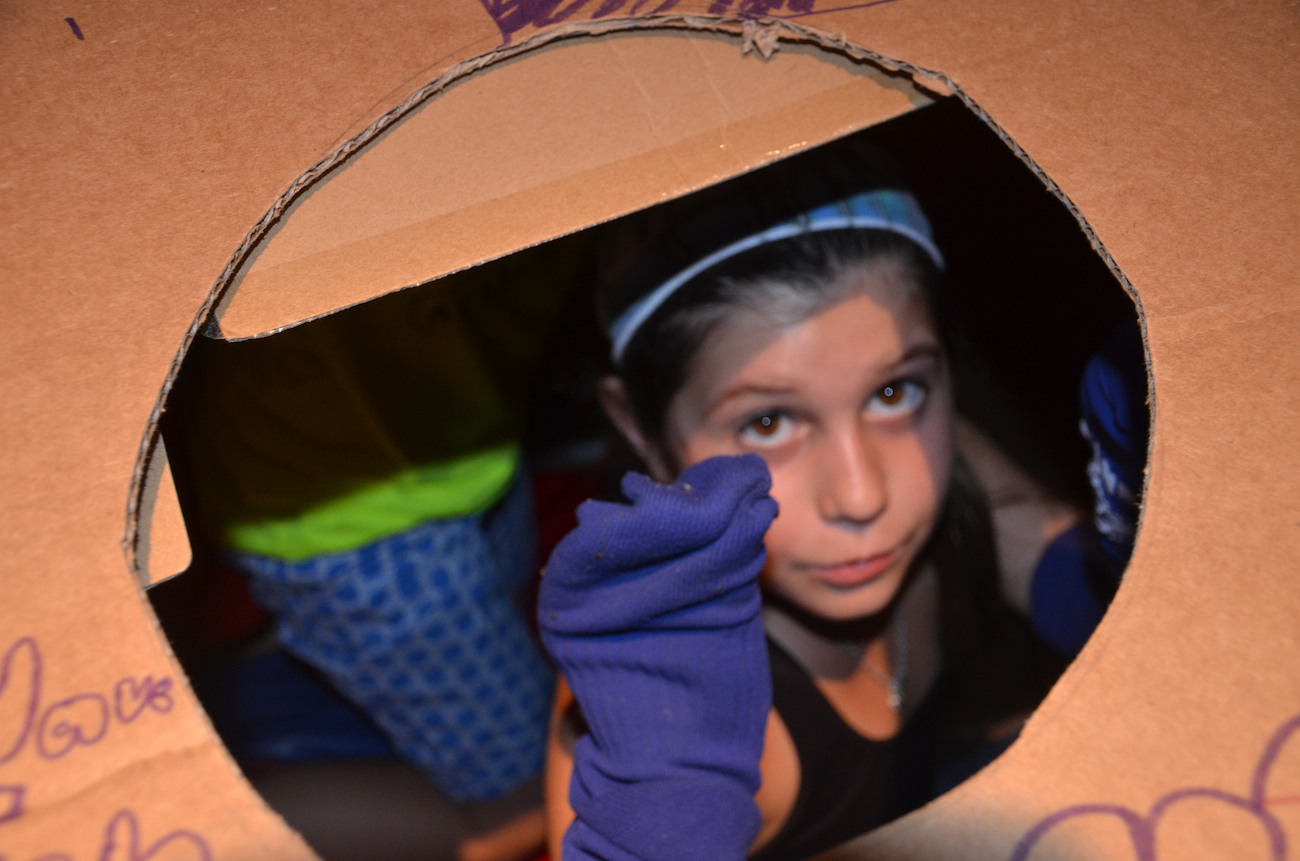One morning, a fifth grader walked into Mark Greenberg’s office at Springside Chestnut Hill Academy. Her laptop was open, she was a minute and a half early, and she spoke confidently about her idea for making and selling bracelets. She was “as tall as my waist” and “relentless,” Greenberg, the executive director of the school’s Center for Entrepreneurial Leadership (CEL), remembers.
Her goal was to make bracelets “that sell” and give the funds to the Children’s Hospital of Philadelphia.
This fifth grader is one of the kids at the preK-12 school who is part of SCH Academy’s fascinating new Venture Incubator.
During the 12-week program, kids create or grow nonprofits, for-profits, or launch their own personal projects. They experience the incubation process and work under the mentorship of powerful entrepreneurs, including the former president of a Fortune 100 company, a crowd-funding expert, and a businessperson who has started and sold seven well-known Internet companies.
Another student who sought out the Venture Incubator is a passionate young hockey goalie who wanted to expand his nonprofit, Shutouts for Kids. The four-year-old organization donates to two of the goalie’s favorite charities—the Make-A-Wish Foundation and the Ed Snider Youth Hockey Foundation—for every shutout he gets.
The 15-year-old hockey player wanted to be involved in the Venture Incubator, Greenberg says, because he felt his organization had plateaued. To help him make a bigger impact, the Incubator is guiding him through the process of creating a new model that will get more goalies involved. More goalies equal more shutouts, which will lead to more donations for kids in need.
But the Venture Incubator projects aren’t always focused on charity. A group of students, for example, were sick and tired of soggy grilled cheese sandwiches. By devising a sandwich rack that connects to a plate, they hope to avoid the steam trap that moistens one side of a sandwich when it’s simply put on a plate.
As part of the invention process, some of the kids are researching patents and other products; others are creating prototypes and talking to restaurants and individuals to assess the interest.
The Venture Incubator, Greenberg says, “is about learning in action.”
He also stresses that it is less about whether students are successful or not, and more about “getting out there, doing it, and using a healthy, intelligent, deliberate process—and knowing that the process matters.”
The Incubator is just one of the ways the school teaches kids to become entrepreneurs. As part of the school’s Center for Entrepreneurial Leadership (CEL)—an education model that challenges the limitations of traditional education with the hopes of preparing kids for the real world—students are exposed to seven strands of knowledge: the Art of Communication, Engineering/New Media, Entrepreneurship, Ethics, Global Immersion, Leadership, and Statistics.
In every grade, there is CEL time. For example, as part of the Engineering/New Media strand,“our kids learn to draw in 2D and 3D using CAD, Google SketchUp and a variety of other programs,” Greenberg says.
This happens during their CEL block, but what they learn often bleeds over very quickly into the rest of their classes. Greenberg explains this further: “They’ll learn about leadership during CEL, and then they’ll go into a history class and talk about what kind of leader he or she is.”
Each day, students are learning skills such as awareness, problem solving, communication, presentation, teamwork, collaboration, and critical thinking.
“The idea,” Greenberg says, “is that these are muscles you are building and you need repetition, and you need it in as many places as possible because that is really the real world.”
“At the core of SCH Academy’s argument,” Greenberg says, “is that entrepreneurs are made, they are not born, and it really comes down to these skill sets, competencies and approaches.”
Another important skill Greenberg and SCH Academy teachers feel is essential to entrepreneurship is empathy. Mary Ann Domanska, a second-grade teacher at SCH Academy, explains its importance: When children empathize, she says, they learn to look at solving a problem from the perspective of someone else’s need instead of their own.
By understanding this way of thinking, “we’re empowering kids to speak up and know how to go after and fulfill needs in their community and the world at large,” she says.
Empathy, as well as other entrepreneurial skills such as problem solving, teamwork, and communication, was a major part of what students at SCH Academy learned during the 2013 Global Cardboard Challenge, where we were first introduced to the school.
The fourth graders were chosen to be the arcade game makers, and the younger kids were the players. In order to make games for students in the lower school, the older kids needed to empathize with them, and as one student says, “think outside the cardboard box.”

Photo: Fourth graders constructed a whack-a-mole game that the younger kids, like Elena, would enjoy. (Photo c/o Mary Ann Domanska)
When the day arrived to play the games, the fourth graders took the time to lead the younger kids through the process. “It was so much fun to watch, and they were really proud of what they accomplished,” Domanska says.
Because they built the games together, the fourth graders learned the importance of listening to other people’s ideas and compromising. They also learned that it’s okay to make mistakes.
“Having the confidence to make mistakes, and to understand that mistakes help us learn, is an important part of entrepreneurship,” Domanska says.
Kids need to know that, “it might not work out the first time, but if they keep at it, they’re going to end up with something fantastic.”
By engaging in projects such as the Cardboard Challenge and programs like the Venture Incubator, SCH Academy students are becoming much more prepared for what lies ahead.
“There is a lot of evidence out there,” Greenberg says, “that kids are emerging from college without communication skills, teamwork skills, and problem-solving skills. That is part of what we are trying to reintroduce from top to bottom.”
This story was written by Jenny Inglee, the Imagination Foundation’s Imagination Curator and The Storybook Editor. The first collection of stories in The Storybook focus on the work of inspiring individuals, schools, and organizations that participated in the 2013 Global Cardboard Challenge.
[primary_link_alt text=”Sign me up for The Storybook” href=”https://eepurl.com/MDElb” style=”margin-left: 0;”]


Recent Comments